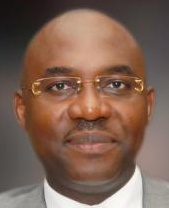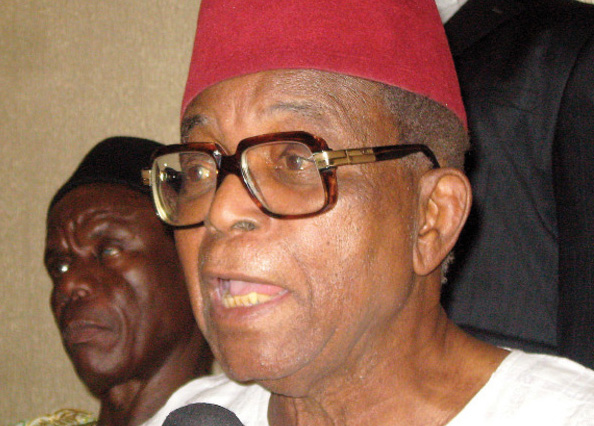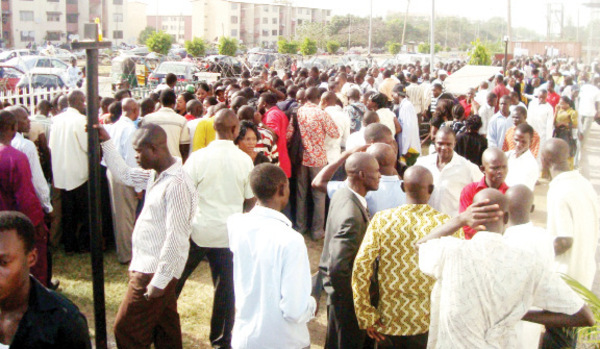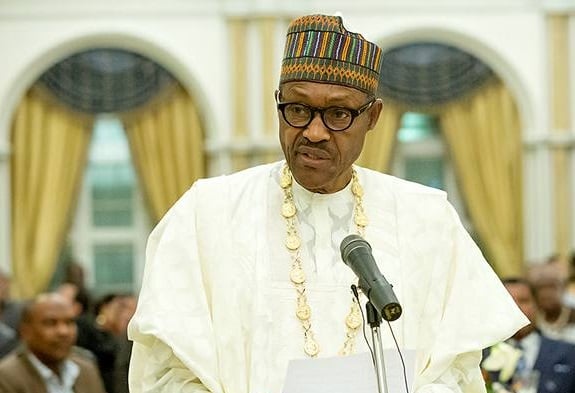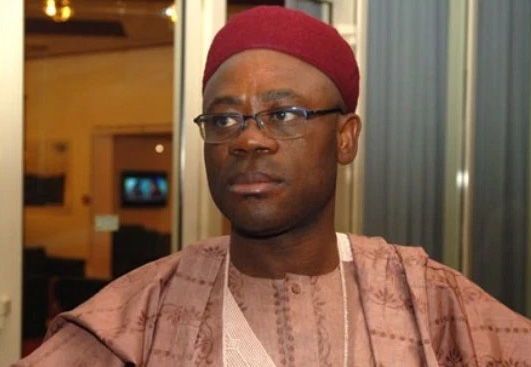To be honest, the erosion of value in our traditional institution is not just beginning. The degeneracy of decades is amply reflected by the proliferation of titles without honour. For instance, alarmed by what was considered the dizzying alacrity with which a first-class Yoruba monarch (now of blessed memory) began to dispense chieftaincies at some point, a palace wellwisher, as the story goes, came over and privately warned “Kabiyesi, bi ese nlo yi, oye na ma to tan. (Your majesty, at this rate, the stock of titles will soon finish.)”
To the unsolicited counsellor, the king, obviously with an eye on the next client, famously retorted: “Ko da, oyetan to so un, oye kan niyen (In fact, another title can creatively be named ‘Chieftaincy-is-finished’).”
The foregoing tale of profanity and merchandising is, however, no where near the latest stench of cultural infamy oozing from Esanland in Edo State. According to reports, the Enogie of Uromi, in what looks like an attempt to ingratiate himself with a political interest, is at the verge of committing a grave cultural sacrilege. His highness seems in too much hurry to auction a mantle made when he was not born, whose rich history he, therefore, knows little or nothing about.
Incapable of any creativity of his own, the royal father has resorted to willfully cannibalizing history by seeking to trade in the Adolor stool duly created in the 1950s and later gazetted in honour of Anthony Enahoro, an illustrious native and indisputable giant of history who transited to immortality six years ago.
Advertisement
Guess who the Enogie is “dashing” the sacred beads to? He is no other than Michael Onolimemen, the immediate past Minister of Works.
Roughly translated, “Adolor” means “he who sews” or “he that repairs” or “the redeemer”. How did the title come about in Uromi? It was created and consecrated in appreciation of not only the exemplary contributions of then youthful Tony but also immortalize the heroic sacrifice of his forebears to the growth and development of Uromiland. His maternal grandfather, whose statue today decorates Uromi marketplace, fought many famous duels with British colonial masters, suffering imprisonment in Calabar and countless tenures of banishment from his throne in Benin and Ibadan. His great grandfather was brutally executed by the British. His father was infamously put on trial for sedition.
Expectedly, the Enahoros are today enraged by this cultural ambush by the Enogie who, incidentally, is their relation. (Tony is the son of the present Enogie’s great-great aunt.) When rumour of the plot first came, a senior member of the Enahoro clan reportedly dismissed it as unthinkable, given “Tony’s stature in Uromi, in the government of the Western Region and indeed throughout Nigeria.”
Advertisement
But the duty to curb the Enogie shouldn’t be left to the Enahoros alone. It is a clarion call on all those committed to the sanctity of history as well as all lovers of decency. Objectively speaking, “Adolor”, being the outcome of wide consultation in the late 1950s, is meant to be hereditary. This is clearly stated in the Bendel State Govt Gazette of 1979 under Schedules entitled “Traditional rulers and Chiefs Edicts”. In the Second Schedule of section 39 (2), the Adolor of Uromi is positioned 3rd below the Oniha and the Iyasele in that order.
Indeed, it was a tradition throughout Benin Kingdom that no one was permitted to imitate or duplicate the name of an Oba, living or dead. The Uromi Traditional Council, led by His Highness Prince Uwagbale (Enahoro’s uncle), reportedly sought and obtained the permission of His Majesty Oba Akenzua (father of the present Oba) to sanction the use of the name. As a further honour, the newly created Adolor title was ranked third in the Traditional Council. Thus did Chief Anthony Eronmosele Enahoro leapfrog existing forty title-holders to establish, presumably till end of time, an enviable chieftaincy status for himself and his heirs under the rule of primogeniture that has governed inheritance of traditional rulership and traditional chieftaincy in Edoland.
By that rule, upon the transition of Tony (the paterfamilias), his first son, Kenneth, naturally becomes the new “Adolor”.
Across the cultural borders, the title of “Owele of Onitsha” easily offers a striking parallel. The creation of “Adolor” then would appear a response of the proud people of Uromiland to what their Onitsha neighbours had done for their own illustrious son, the great Nnamdi Azikiwe. It is a fact of history that the great Zik had, alongside the likes of Enahoros, championed the national struggle for independence through the 1940s and the 1950s. When he passed on in the 1996, his first son (Bamidele Chukwuma) seamlessly stepped into his dad’s shoes without any dispute. We never heard that Obi of Onitsha thereafter attempted to double-cross Zik’s family or sell the title to the highest bidder in Onitsha.
Advertisement
Were it honorary, the Enogie would today be at liberty to parlay the Adolor office as a tool of patronage. Then, no one would care if he preferred to award the title to any discredited politician or dubious contractor.
Subjectively speaking, that the staff once wielded by the immortal Tony Enahoro could be dragged into this sorts of murky controversy is not just a manifestation of sheer ignorance of history but also the height of ethical reprobation. Those now trying to vandalize the communal memory in Uromiland should be reminded that Enahoro was not just a great son of Uromiland; he will forever occupy a significant positive corner in Nigerian history. To compensate for all the negativity his townsman, Tony “Mr Fix-It” Anenih, approximates in national psyche today.
As a clan, the Enahoros, through a tradition of service and excellence, have arguably done more than any other family in living memory to put Uromi on the world map. Tony and “Peter Pan” Enahoro are probably the best known, but their late brother Eddy served Nigeria as an ambassador. Their only sister, Bess Santos, retired as an educationist. Henry was a Professor who invented two patented household tools in Australia. Ben retired as Senate Sergeant-at-Arms (he had played football for Nigeria). Chris held the Commonwealth school boy high jump record (apart from being captain of the national cricket team and later serving as chairman of the Nigeria and West African Cricket Association). Today, in his 70s, he is coach of Nigeria’s future tennis stars. Mike Enahoro who passed away recently set standards at work as a television presenter and at play in golf.
On his own part, Tony was not only instrumental to bringing pipe-borne water to the entire Esanland, he, it was that first moved the motion for Nigeria’s independence in 1953. It is not by accident that the Edo House of Assembly complex today is named after him. Also, it is no coincidence that Lagos, the acclaimed centre of excellence, found him worthy to name a sprawling estate after him.
Advertisement
If the present Enogie is sufficiently versed in the history of his own homeland, he also would not have forgotten or pretended to forget the same Enahoro, as an influential front-liner in the Action Group, facilitated the setting up of Uromi General Hospital, which finally ended the suffering of his people going to Agbor, 40 miles away, for medicare. Unlike today’s growing tribe of counterfeit comrades and fake leaders who mindlessly steal from the unborn generation and shamelessly flaunt their loot around, Enahoro toiled relentlessly and selflessly for the uplift and emancipation of his people. A man of modest taste, nowhere in Nigeria today will any sprawling castle or fortune be found in his name or any front, other than the nondescript home he lived and the golden name he left behind.
When the Awolowo government in which he was a prominent member famously launched free primary education in the old Western Region, he ensured that was followed up with Esan Grammar School. For the first time, his people did not have to flock en-mass going outside their home district in quest of secondary education.
Advertisement
His younger days and early career as a newspaper editor were interspersed by prison terms under British rule – on the first occasion because of an editorial comment, the second time on account of the content of a lecture, and the third time for chairing a public rally at which, even though newly out of prison, he was drafted from the audience to stand in for the great Zik who failed to keep his promise to attend the radicals’ event where a speech entitled “A call to Revolution” was due to be read out.
If the present Enogie read history well, he would also remember that in the ferment of Nigeria’s independence struggle, Enahoro was fondly named the “Stormy Petrel of the Action Group” by the media on account of his exceptional oratorical skills. It was no surprise therefore that the party chose him to present its historic, groundbreaking motion calling for Nigeria’s independence in 1953.
Advertisement
He did not just fight for independence, he also suffered for liberty and democracy in post-Independence Nigeria. He was sentenced to 15 years imprisonment by a Lagos High Court, found guilty of treasonable felony, controversially accused of plotting to overthrow the Federal Government along with his party leader Obafemi Awolowo, who received the lesser sentence of ten years.
Three decades after vanquishing colonial predation, Enahoro would return to the barricades against military despotism following the annulment of June 12. Then in his 70s, he would endure the noxious fumes of tear-gas deranged Abacha freely lobbed at the procession of pro-democracy activists whenever and wherever they surfaced across the land.
Advertisement
Fresh from one of such outings in 1994, he had agreed to field questions from a group of journalists led by Kayode Komolafe (present THISDAY DMD) inside his hotel room in Lagos. Then, he was asked if he did not feel diminished with the shabby treatment meted him now having to lead street protest four decades after moving the motion for Nigeria’s independence.
Responding, he was at both his sagacious and philosophical best. Freedom, according to him, is deserved only by those prepared to fight for and defend it.
Soon afterwards, he was waylaid by Abacha head-hunters and detained for months in most inhuman conditions. Later, he fled abroad and, at the age of creeping infirmity, again found himself providing leadership to the international wing of NADECO, the pro-democracy movement that eventually fought Abacha to a standstill.
To be sure, no one saying the urbane and taciturn Onolimemen, who hails from the Ivue community, did not do well for Uromiland in his capacity as Works minister. Any objective visitor to Uromiland today can’t but acknowledge his bold landmark in terms of decent dual carriageway that criss-crosses the town. But in celebrating Onolimemen for using his office to better his community, the Enogie did not have to literally pee on Enahoro’s tomb and rob the dead of its hard-earned jewel. Let him invent another honorary title for his client.
As the controversy rages, the story is told that the former Works minister had, at some point, developed cold feet over the Adolor offer following protestation from the Enahoros. At a meeting with a senior member of the Enahoro family, he reportedly assured he would never be part of any scheme to try on Tony’s monumental shoes, much less desecrate his stool.
Maybe, we should still give him benefit of doubt for now. As a well educated man, the least expected of Onolimemen is politely refuse the custody of stolen beads and a tainted crown. Otherwise, the violated ghost of Enahoro will surely return to haunt its troublers.
Views expressed by contributors are strictly personal and not of TheCable.
Add a comment
